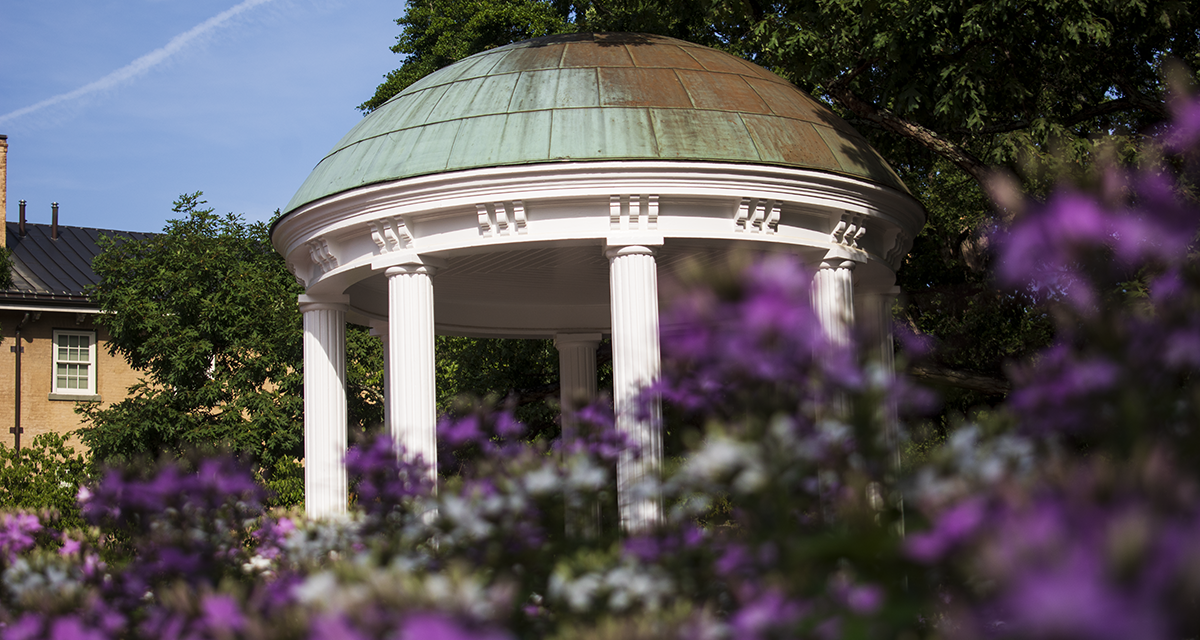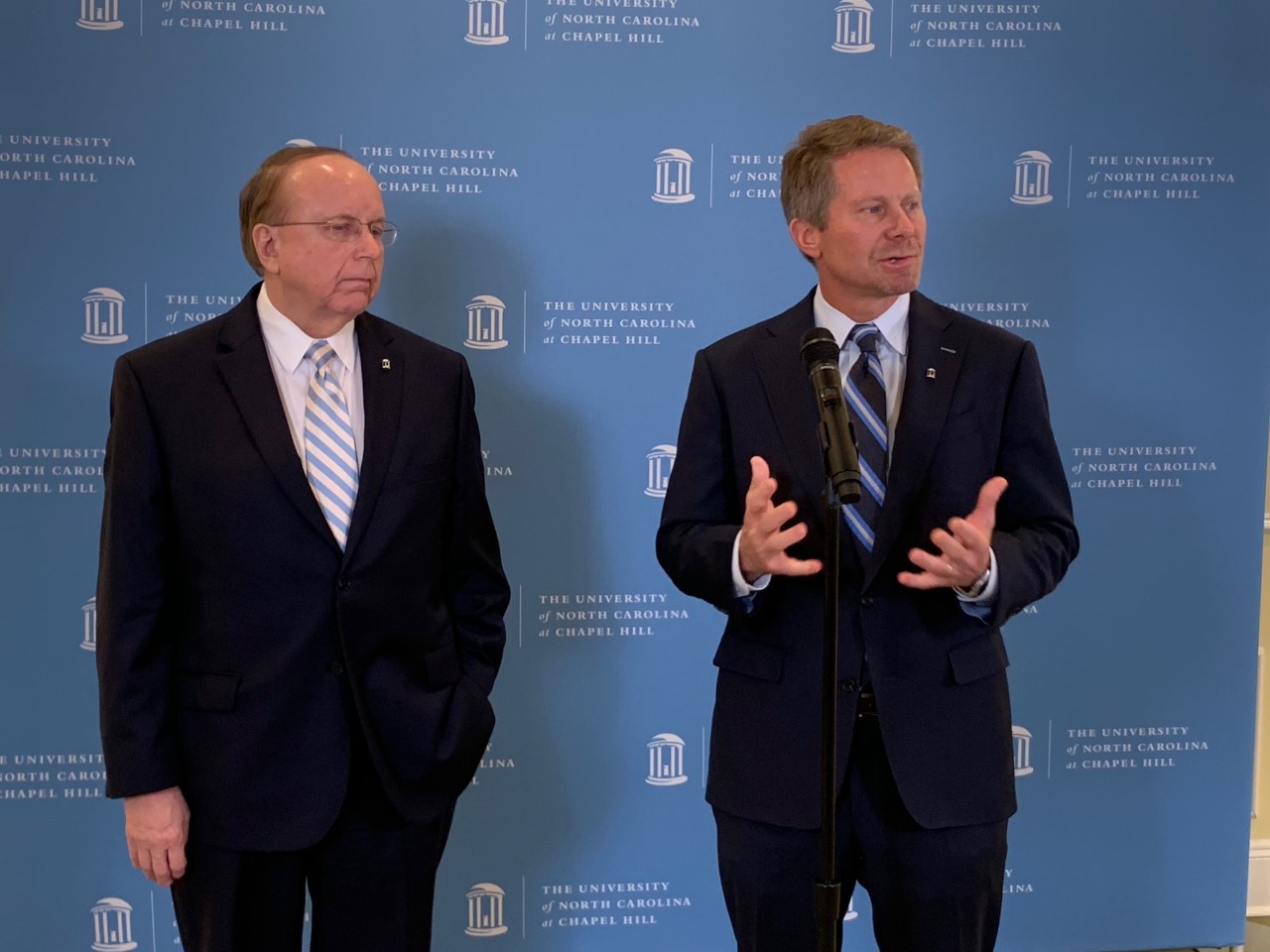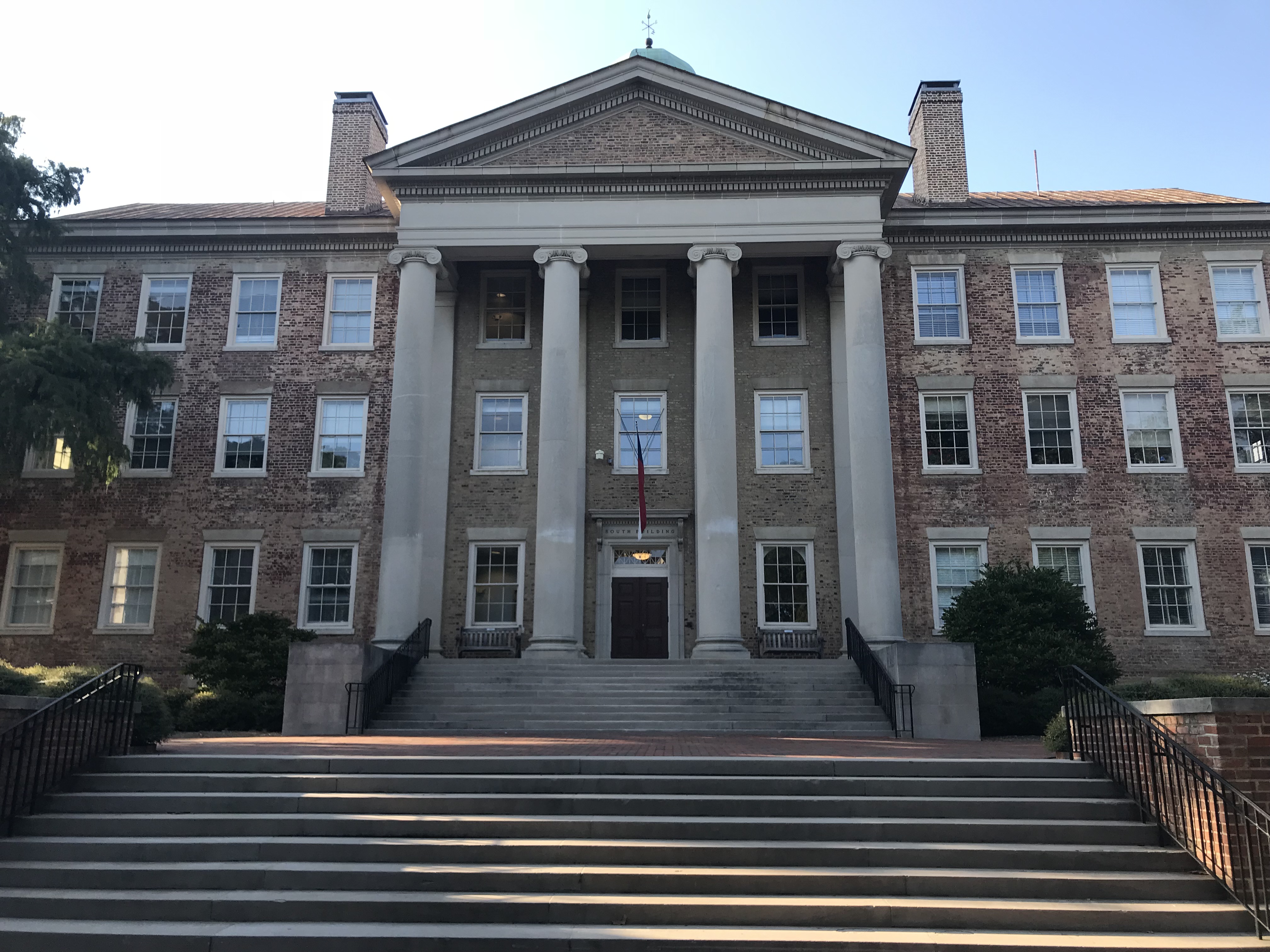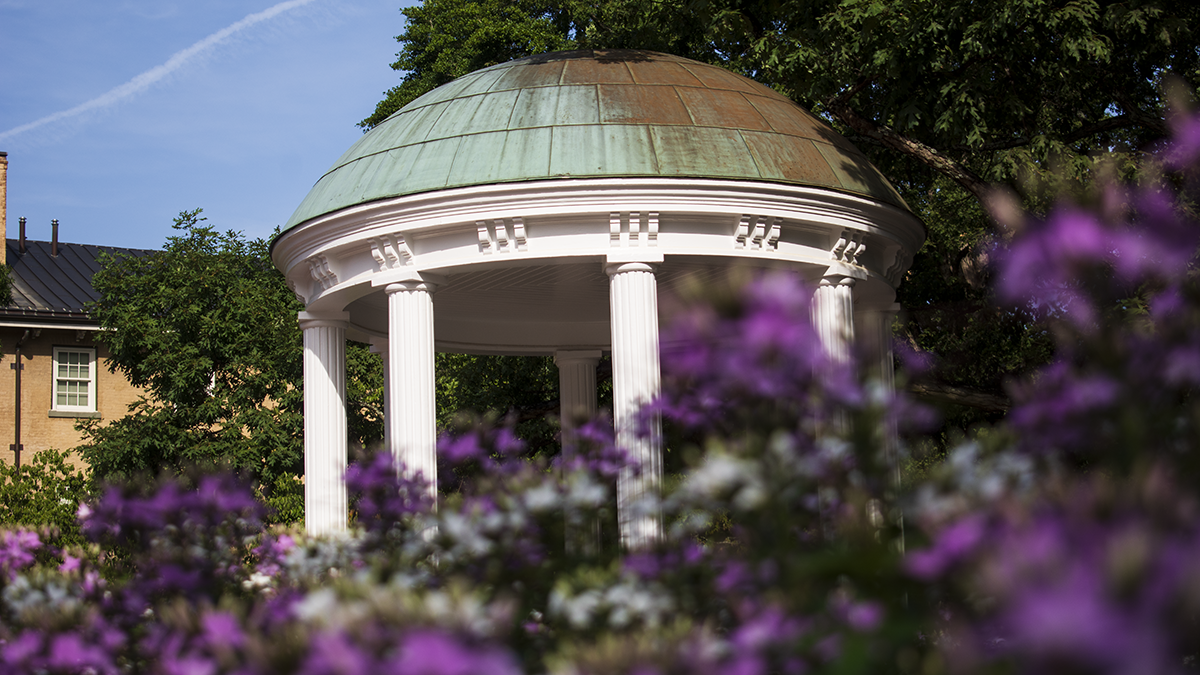The letter is signed by 18 members of the UNC Black Pioneers, who all attended the university between 1952 and 1972.
Chair of the group Walter Jackson arrived at Carolina in 1963. On the Weekend Water Cooler podcast, he described arriving on campus as being a cultural shock because the university was an “overwhelmingly white world.”
“There were about 10,000 students at Carolina at that time,” said Jackson. “In my freshman class, there were only 17 African American undergraduates. That more than doubled the number who were already here.”
Jackson said at the time, the Confederate statue known as Silent Sam was one of many ways pro-Confederate sentiments were displayed around UNC. Between Confederate flags hung around campus and ‘Dixie’ played at the halftime of football games, he said black students saw plenty of additional reminders of the past.
“That monument,” Jackson said, “while offensive, did not particularly stand out on the landscape to me and to many other African American students above many other affronts to [us].”
While those other practices were discontinued, the Confederate statue still stood on campus and began to attract more controversy. Protesters toppled it in 2018, setting up an extended period of uncertainty surrounding its future and whether it would return UNC campus.
The UNC System’s settlement, which was determined before the Sons of Confederate Veterans filed its lawsuit against the system, required for Silent Sam to never return to any UNC school’s grounds. But the creation of a $2.5 million trust fund for the SCV to use for the monument’s preservation and display upset many, including members of the Black Pioneers.
Jackson said when the group chose how to respond to the UNC System, some members saw the settlement as impossible to make up for. While in the letter, the Black Pioneers request for 2.5 million dollars be put towards scholarships and supporting the Sonja Haynes Stone Center, some members wanted a bigger response.
“When that discussion started within our group, someone said, ‘Let’s ask them for $10 million.’ That was the level of outrage. I think even if it were [that amount], there would be some who would not think it’s an appropriate counterbalance to the $2.5 million given to the Sons of Confederate Veterans.”
With the letter, the Black Pioneers have officially registered their dissent with the UNC System. Jackson said the message of the letter highlights how the settlement may have made tensions around the monument even worse than they already were.
“For many people including myself,” he said, “that was just outrageous.”
Here is a the Black Pioneers’ letter in full:
To the UNC Board of Governors:The UNC Black Pioneers, representing the first generation of African-Americans to attend UNC-Chapel Hill between 1952 and 1972, are appalled at the UNC Board of Governors’ reported effort to resolve the issue of the Confederate monument known as Silent Sam by putting $2.5 million into a trust for the Sons of Confederate Veterans.We the undersigned, on behalf of numerous colleagues around the country, strongly oppose the decision that was made to try to appease some of those persons who are still trying to fight the Civil War, and we hereby register our dissent. World-class Institutions of higher learning such as our alma mater should promote inclusiveness and oppose outdated philosophies that hurt the growth of our society. When the Board of Governors makes decisions that affect the university’s contribution to society, those decisions should be aimed at promoting societal good. The decision that has been made does not do that.More than 15,000 African-American alumni have now studied at UNC. Already we have learned that some of those alumni, as well as a number of other non-minority alumni and philanthropists, are moving to withhold contributions from the university because of the action that is being taken. We respectfully and forcefully request that the Board of Governors act to rescind the action of providing the said money to the Sons of Confederate Veterans, an organization known for promoting discord and spreading false versions of history, if that is in any way something that can be done legally. If that donation cannot be reversed, we request that an equal or greater amount be set aside for UNC Chapel Hill’s Light on the Hill Scholarships and for the Sonja Haynes Stone Center for Black Culture and History, as one step to begin to counteract the negative effects of the funds being given to the Sons of Confederate Veterans.Respectfully,Walter A. Jackson, ’67, Durham (Chair)John W. Sellars, ’71, RaleighAlgin Holloway, ’68, DurhamKaren Parker, ’65, Winston-SalemOtto White Jr., ’65, Chapel HillJimmy Barnes, ’69, DurhamEddie Hoover, MD., ’65, (BS), CharlotteEugene C. Hines Jr., ’72, BA, ’75, MPH, CharlotteDr. Linda Powell Addo, ’66, Greensboro, Woodrow Wilson FellowshipLewis Burton, ’65, ChicagoJoanne AP Wilson, MD, ’69 (BS), RaleighSylvia Norris Jones, ’68, Ypsilanti, MINat B. White Jr, PHD student, ’67-’69, AtlantaProf. Philip L. Clay, ’68, Cambridge, MAEdith Autry Hubbard, ’68, CarrboroGeorge E. McDaniel Jr., ’67, Oakland, CAProf. Adolph L. Reed Jr., ’71, PhiladelphiaWilliam Wicker, ’72, Greensboro





